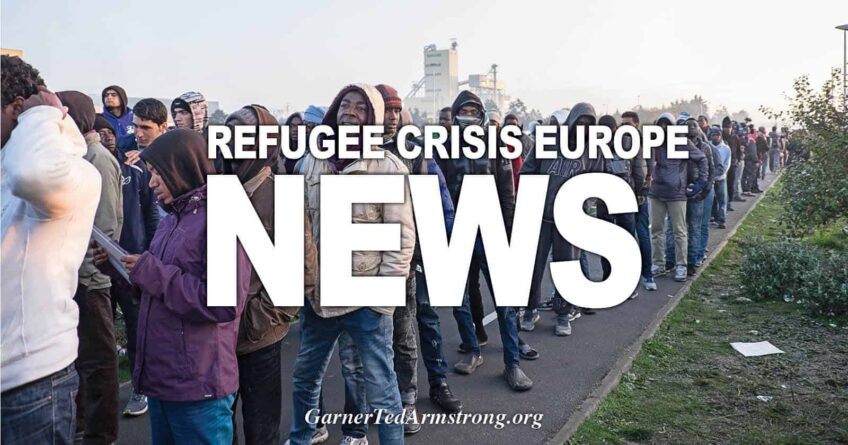There’s a clear bias against non-European asylum seekers and Syrians especially are seen with growing suspicion and hostility
Turkey was a migrant-sender rather than a host country until the late 1980s, when conflicts in neighbouring regions transformed it into a destination and transit country. It has never hosted such a large number of immigrants as it does now as a result of the Syrian crisis, with the number hitting more than three million in 2016.
Turkey uses what is called the geographical limitation principle, under which it grants permanent protection only to the asylum seekers who flee as a consequence of events occurring in Europe and temporary protection to those from elsewhere. Despite its acceptance of the Geneva Convention and its Additional Protocol, Turkey is currently the only country that strictly implements different policies towards European and non-European refugees. This means harsher policies for the non-European asylum seekers.
Today, with unemployment and lack of education getting in the way of the hospitality process, many within Turkish society regard the high number of Syrians with growing suspicion and hostility. The state’s attitude towards immigrants, meanwhile, has fluctuated between humanitarian concern and worries about national security. The government’s 2016 migration report also reflects these concerns of “establishing a human-centred, strong and sustainable migration management system on the basis of our national interests”.
While Turkey kept an open border policy at the beginning of the Syrian conflict, the state’s nationalist reflex has kicked in since 2014, with increased border controls, a lack of systematic social benefits, and some Syrians denied refugee status.
Only 48,738 Syrians reside in Turkey with a residence permit, while the rest are under temporary protection. This is implemented at times of mass migration when individual asylum applications cannot be evaluated effectively and it is based on three principles of migration law: open door policy regardless of religious or ethnic background, non-refoulement and providing basic needs.
Taken together, these and other statistics force us to consider the myths about Syrian asylum seekers circulating among the Turkish media and public.
Deconstructing myths
For instance, many argue that “(they) Syrians should have stayed in Syria and defended their country” – but more than 46 per cent of them are under the age of 18. Another common myth among Turkish population is the idea that the Turkish government “feeds the Syrians” – but most Syrians in Turkey are living outside the camps, unlike the situation elsewhere. While 9.12 per cent of asylum seekers in Turkey live in the camps, the rest are trying to survive on their own – many by begging, collecting garbage, or being exploited in the informal economy.
Istanbul hosts the highest number of Syrians of anywhere in Turkey, with 438,861 people. But some cities, Syrians’ ratio to the total population is dramatically higher. For instance, in the southeastern province of Kilis, Syrians make up 93.5 per cent of the population. The government has a policy of locating asylum seekers to less populous places, but many prefer to live in big cities where they have social networks and are relatively inconspicuous, protecting them against the threat of discrimination.
The report does not provide information on social benefits, but a recent study conducted with 604 Syrian workers in Istanbul has found that only 3 per cent receive some form of help, while high levels of unemployment and lack of work permit limit their entry to official jobs.
Work permits are highly restricted, and fewer than 20,000 have been issued so far. A comparison between Turkish and Syrian workers shows that Syrian men receive nearly $95 less and Syrian female workers $140 less than Turkish male workers’ average monthly wage.
In dire need of education
The high percentage of young people among the Syrian asylum seekers makes education an urgent issue – but Turkish public opinion regards any investments in integration as an encouragement for them to stay.
Another study shows that many Turkish people do not want the Syrians to be granted citizenship. Around 27.5 per cent of the study’s participants state that Syrians should be given no education at all. However, reverse migration in any near future seems unlikely; even if the war were to end immediately, it would take a long and difficult effort to establish a life back in Syria.
Only 24 per cent of Syrian children outside the camps have access to education. Less than 60 per cent of the 900,000 school-age Syrian children are enrolled at educational institutions, and only 18 per cent attend regular schools. 432 temporary education centres are available for Syrian children. As of March this year, 459,521 Syrians have received educational services, and Turkish authorities are preparing bilingual learning sets that include games and language learning exercises for Syrian children.
These measures are important but not sufficient. School capacity needs to be increased: research shows that integrating 80 per cent of Syrian children into the Turkish education system would require at least 40,000 new teachers and 30,000 classrooms.
The insufficient measures for long-term needs may create deeper problems in the future, such as high crime rates and widening socio-economic gaps. The topic is highly charged, and is tied up with Turks’ strong pro- or anti-government attitudes. The facts are not being properly discussed, and Turkey is not learning from the experiences of countries that have received large number of asylum seekers in the past, such as Pakistan. Above all, what’s missing from the discussion is a focus on human rights and dignity.
Integration efforts should incorporate the local population. Educating the Turkish public about asylum seekers’ living conditions and cultural differences is crucial. Finally better co-ordination between Turkey and EU is in all parties’ interest. Such co-operation would be a challenge at a time when Turkey’s EU admission talks are suspended – but it’s at times like this when dialogue and co-operation are needed the most. -The Conversation
Aysegül Akdemir is a part time instructor at MEF University, Istanbul.
Source: https://www.khaleejtimes.com/editorials-columns/syrian-refugees-in-turkey-are-getting-a-raw-deal
[Disclaimer]











